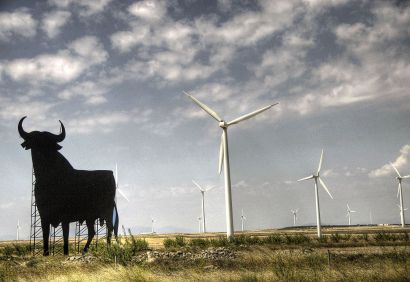Spanish wind investors beware: New capacity may be on offer, but experience shows the auction process is not to be trusted.
Spain’s wind industry association, the Asociación Empresarial Eólica (AEE), believes a government accounting dodge deprived the sector of €630 million ($740 million) in the three years leading up to January 2017.
The trick made it impossible for plants to achieve the 7.39 percent “reasonable return” promised by the government following the elimination of Spanish feed-in tariffs in 2013.
And although the new regime now in place includes a review every three years, AEE says the government, which did not respond to GTM’s request for information, is planning to continue underpaying the industry until 2020.
AEE says Spain’s wind industry will miss out on €400 million ($470 million), getting 38 percent less than is due under the government’s own rules.
While the methodology the government uses in calculating its reasonable return runs 1,761 pages, the key to its sleight-of-hand is in just one figure: the price of energy. How this feeds into the final amount paid to wind farm operators is fiendishly complex.
If the price estimates used for the calculation are more than the real price, the payments go down. And that is what has happened.
In 2016, for example, the average price of energy on the electricity system was €39.67 ($46.67) per megawatt-hour, around €10 less than the estimate of €49.75 ($58.53) used by the regulator for its calculations.
In the three years from the end of 2013 to the start of 2017, AEE says the average price was €6.37 ($7.50) per megawatt-hour less than that used by Spain’s National Commission of Markets and Competition (Comisión Nacional de los Mercados y la Competencia, or CNMC).
Perversely, this price reduction was largely due to low-cost energy production from the wind sector. The wind sector has protested that it is being penalized for helping to cut the cost of electricity.
Another gripe concerns the three-year review that took place this year. In theory, this should have given wind farm operators a chance to recoup any money owed from previous years.
Once again, though, the government allegedly shortchanged the industry: The small print of the reasonable return regulations, it turns out, contains limitations on the amount of compensation that could be paid out.
As a result, wind farm owners were only paid 36 percent of what they were owed for the shortfall in previous years.
“The limits included in the way the system is designed make it unlikely the compensation will be for the total amount,” noted AEE somberly in its 2017 annual report.
AEE says it has repeatedly asked the CNMC to change the rules, for instance by using real instead of estimated power prices; or at least by updating the pricing on an annual basis to better reflect changes in market conditions. The calls have fallen on deaf ears, however.
This may be due to the fact that’s Spain’s energy regulator is hardly an independent body. Eight members of the CNMC’s 10-person council are within the People’s Party (Partido Popular or PP), the architects of the reasonable return scheme.
Spanish renewable energy players don’t expect much to change while the PP, currently leading the country in a minority, is in charge.
It was the PP that replaced an admittedly overly lavish feed-in tariff scheme with the reasonable return formula, which critics claimed was arbitrary and unfair.
More recently, the administration has replaced “reasonable return” with an auction process, but observers feel that even this is hardly a gift under a regulatory regime that is scheduled to change every few years.
The power from the winning projects is to be sold into the Spanish power pool, and developers so far have been bidding for a capex-based incentive to be paid in addition to (or as a floor to) this market pool revenue.
However, the winners all offered big discounts on capex, pushing the incentive floor to a point where it is largely irrelevant: All the projects will effectively have to make their money on a merchant basis.
For plant developers tired of the government’s tactics, this may not be a bad thing.
“I’m surprised there’s been this much interest in these recent auctions, given the actions the government has taken,” said Brian Gaylord, senior analyst for Latin America and Southern Europe at MAKE Consulting.


